About 13 years ago, Theresa Roden competed in her first triathlon and was impressed by what she learned about herself during training and racing. She wondered how her life might have been different if she had gained that insight when she was 11 instead of in her 30s. At the time, her daughter was in middle school and that sparked an idea for Roden.
“I realized just how hard that time of life is,” Roden told TODAY. “I just thought, ‘Gosh if we could empower girls at this age and give them all the tools and training and the love and support necessary to do a really big goal like doing a triathlon, giving them the confidence to set a big goal and achieving that, it can change everything.’”
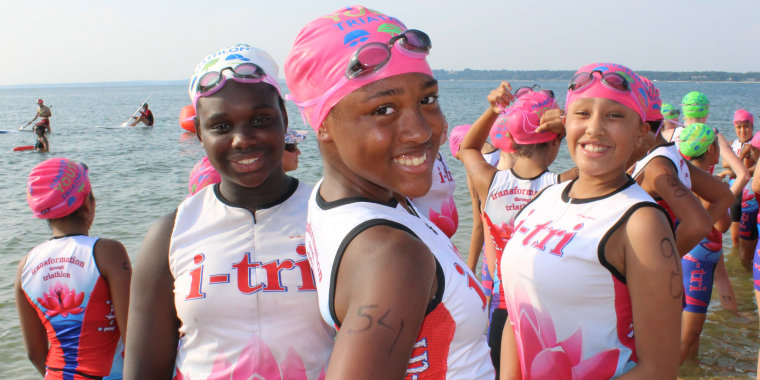
Since that race in 2005, Roden has been training girls, free of charge, to compete in youth triathlons through her program, I-TRI. She works with students from 12 schools around Sag Harbor, New York. The 11 to 14-year-old girls swim 300 yards, bike seven miles and run one and a half miles in their races. While it might seem daunting, triathlons teach the girls confidence and the feeling of satisfaction that comes with accomplishing tough tasks.
“We empower them at that middle school age, 11, 12, 13, where they’re so open to learning,” Roden said. “We teach them that you can be, do … anything you set your mind to.”
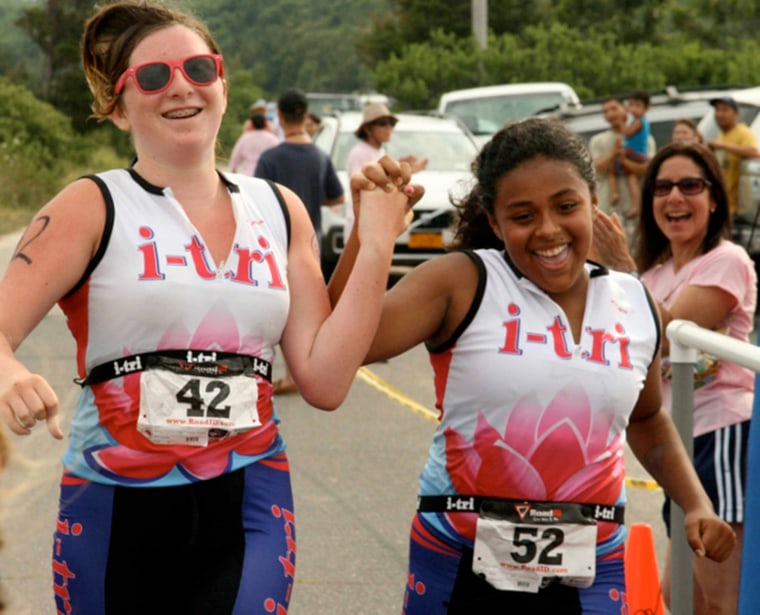
From reluctance to unexpected growth
When girls first hear about the program, there can be some resistance.
“At first, I didn’t want to do it,” Amina Demaio Dalhi told TODAY. “But then I saw all my friends doing it. I thought, ‘Well, let me do it, too, because then maybe I’ll learn. And maybe I’ll become more athletic.”
Tifany Choy Vazquez also signed up somewhat reluctantly.
“It sounds for me like I could try it,” she told TODAY. “Why not? You can have a little fun there. You could talk to a friend while you’re doing it. You could learn more things. You could swim, you could bike, you could run. Some people don’t know how to ride a bike or swim.”
Dalhi was one of the participants who didn’t know how to ride a bike and I-TRI taught her.
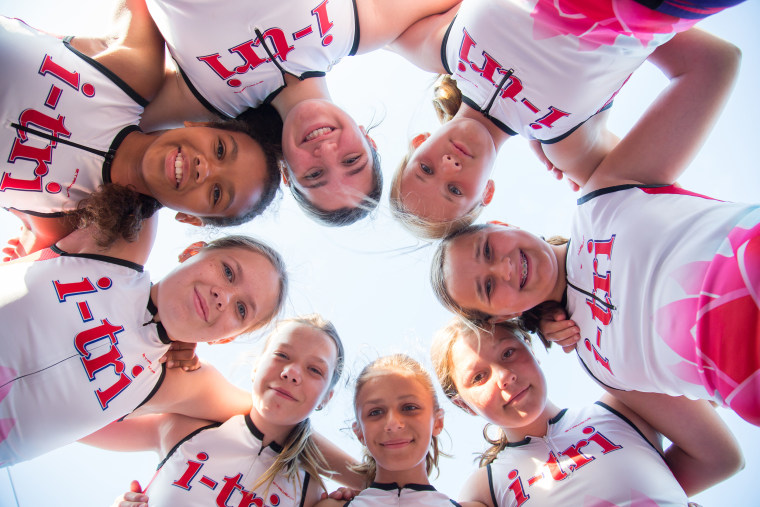
“I felt I had to do it really carefully,” she said. “Once I learned, I was so happy that now I can actually finally do a basic skill. So I’m very happy.”
What’s more, learning to ride a bike well enough to compete instilled confidence in her.
“I’m really proud of myself,” she said. "I’m glad that I did it."
At first, Vazquez thought they were just going to focus on one sport. When she learned that triathlon involved three sports, she couldn’t wrap her head around it. But when she started joining the practices, she grew in ways she didn’t expect.
“It made me believe in me to do more things, do more sports,” she said. “All the people here are so nice so I decided to work hard for them.”
Dalhi believes I-TRI has helped her evolve.
“I can motivate myself to change and to grow,” she said. “Before that, I used to not really want to do anything. But now I am motivated and I feel like I can do anything.”
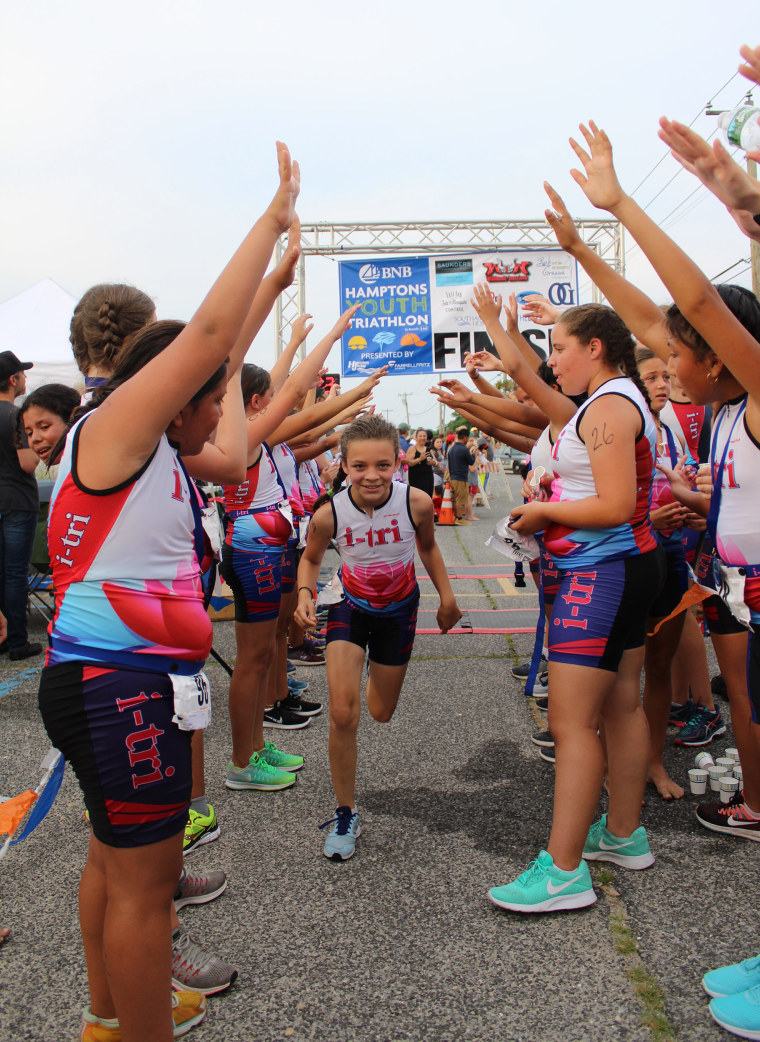
In addition to the physical training, I-TRI hosts special "empowerment sessions" once a week for each school group.
"We do lessons on things like affirmations and visualization and how to appreciate yourself and love yourself," Roden said. "We do a lesson on real beauty where we hand out geodes and they get to see that beauty is from the inside out. And what matters most is that part of you that that nobody can see ... the love that you bring into the world."
It works. Both Vazquez and Dalhi have noticed a difference in themselves that makes them want to return.
"All the coaches here are just the best, they help me a lot," Vazquez said. "The program makes me happy, makes my mom happy (I) finally got respect."
When Sophia Rodriguez was in middle school, she participated in I-TRI, which helped her blossom.
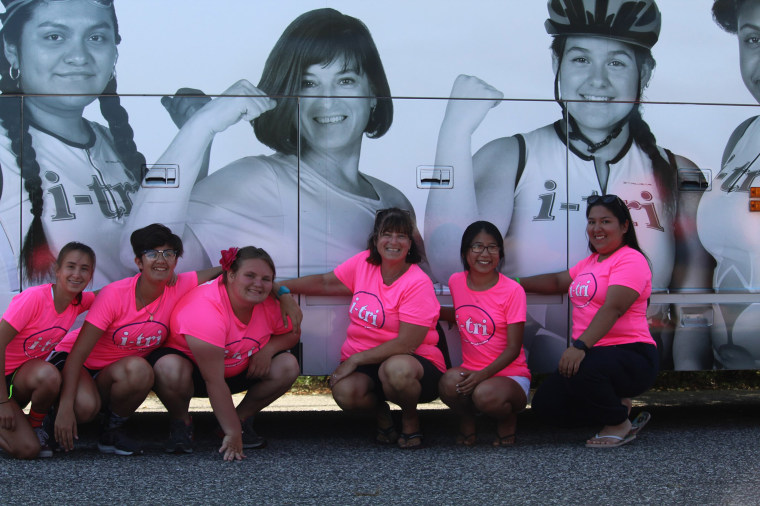
“I didn’t have much support from people my age when I was in middle school,” she told TODAY. “I-TRI brought together all these girls that I previously had never talked to. I didn’t have much in common with them. It gave me the validation of having someone near me at all times just supporting me and being positive.”
She’s now a junior in high school and has returned as a coach to the younger girls and offers the same encouragement she received when she was part of I-TRI.
“It’s really hard, especially so young,” she said. “Maybe these girls have a new skill like learning how to ride a bike or even learning how to swim, which is really important out here. So it’s just that reassurance that they’re still doing everything right.”
Related: